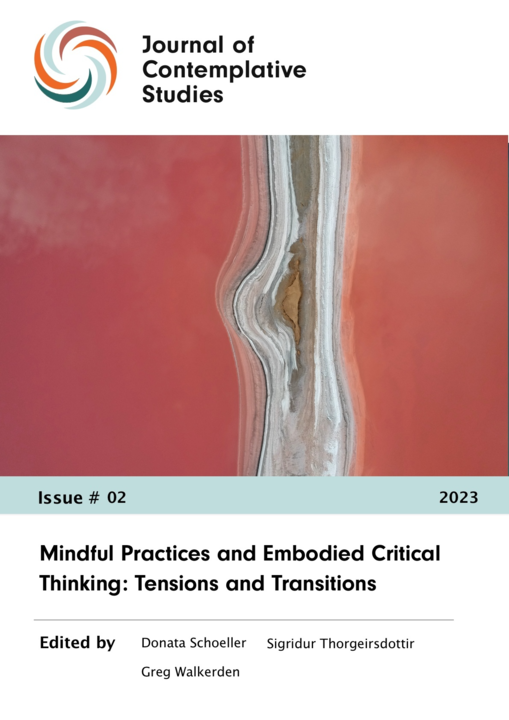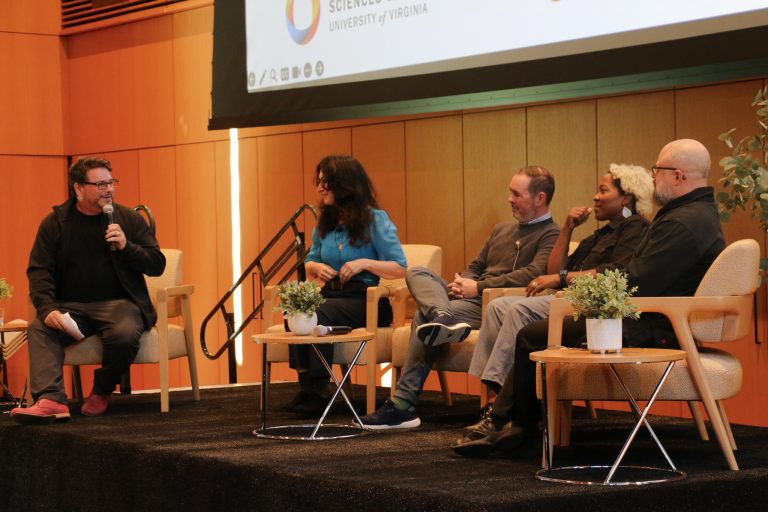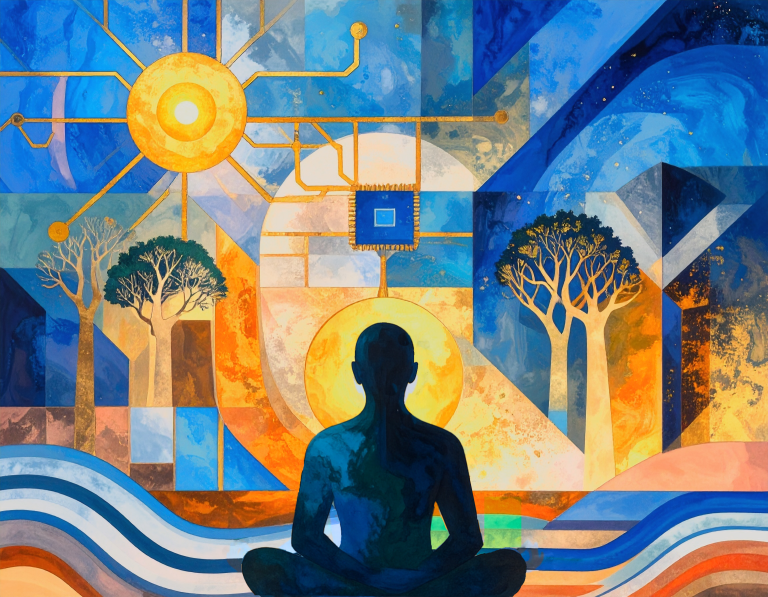The JCS Editors are delighted to announce a forthcoming Special Issue dedicated to exploring the tensions and transitions between mindful practices and embodied critical thinking. By guest editors Donata Schoeller, Sigridur Thorgeirsdottir, and Greg Walkerden.

This Special Issue explores embodied approaches to critical, analytic, and systematic thinking in dialogue with meditation practices. We focus specifically on (i) basic styles of meditative attention that support staying with an experience, here and now; and (ii) practices of embodied critical thinking that engage with complex issues to move towards change. A major question that we explore throughout the issue is, “What characterizes a mindful kind of thinking that engages richly with experiencing a body to support thinking carefully and sensitively about complex issues?”
What kind of awareness deepens and opens-up thinking by explicating background contexts, motivations, paradoxes, inclinations, situations, and so forth, to help thinkers understand and draw on these with greater care? Tentatively, we might characterize such thinking as opening-up an alternative space, a space in-between the “deep ground” of peaceful acceptance and usual ways of being situated amidst difficulties. Embodied thinking practices help thinkers dwell in their embodiment, “getting in touch” with their situatedness, their environment. Mindful, embodied thinking generates fresh possibilities for creative critique and transformative thinking in academic research, and beyond.
Authors of this Special Issue draw from Euro-American contemplative traditions and contemporary philosophy including pragmatism, phenomenology, and Eugene Gendlin’s process philosophy to explore conceptual and practical approaches based on these traditions. Mindful practices, including Micro-phenomenology, Focusing, and Thinking-at-the-Edge, for example, have demonstrated how a certain use of theoretical and abstract language disconnects from lived experience. Such practices demonstrate how language can be employed carefully, to raise awareness of experiencing that would otherwise go unnoticed, evoking creative responses to pervasive systemic challenges.
Conceptualization can play a strong hindering role and can be profoundly empowering. In becoming aware of lived experience and the richness of an embodied sense of a problem, a question or a situation, new possibilities open. Eugene Gendlin’s delineation of felt sensing will be explored, as one innovative approach to contemplative thinking that supports dwelling in a space between deep acceptance and peace that can arise in meditation and a wandering mind. Felt sensing foregrounds powers of conceptual clarification and transformation. It is a distinctly mindful way of “staying with the trouble” (Haraway) to generate possibilities for creative critical thinking and socio-ecological change.
Please send inquires to the JCS Editors via the Contact Us form or via email at contemplativejournal@virginia.edu.





